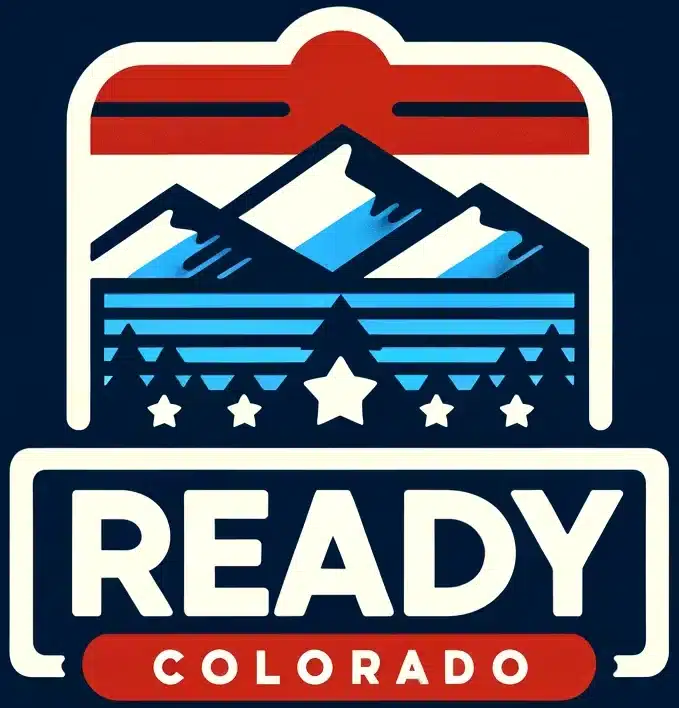Its four distinct seasons showcase the drama and diversity of Colorado weather. From sunny summer days perfect for outdoor festivals to snow-covered winter wonderlands, Fort Collins weather helps shape an unforgettable travel experience.
In This Article
This article explores Fort Collins’ unique weather patterns across seasons, historical trends, and weather alerts to aid in travel planning. Whether you’re a first-time visitor or considering relocation, use this guide to make the most of Fort Collins’ dynamic climate.
TL;DR
- Fort Collins enjoys 300 days of sunshine per year but also sees dramatic seasonal shifts.
- Historical extremes include both blistering summer heatwaves and paralyzing winter storms.
- Stay updated on weather alerts to plan outdoor activities and travel safely.
- Each season offers stunning scenery and weather-dependent adventures.
Seasonal Weather Dynamics
Fort Collins’ weather fluctuates dramatically across its four seasons. Elevation, latitude, and the Rocky Mountains all influence local climate, creating an endless parade of meteorological spectacles.
Spring showers give way to blooming wildflowers, while autumn paints the landscape in golden hues. Snowstorms alternate with sunny winter days, perfect for hitting the slopes at nearby ski resorts. Summer ushers in hot sunny days, dramatic thunderstorms, and cool mountain breezes.
While snow typically blankets the area from November through April, the weather varies considerably from day to day and week to week. Flexible travelers can capitalize on pleasant stretches while avoiding icy roads or blizzard conditions.
Historical Weather Extremes
Like much of Colorado’s Front Range, Fort Collins’ weather history includes damaging floods, hailstorms, tornadoes, and wild temperature swings.
The hottest temperature recorded hit 112°F in 1954, while the coldest registered -44°F in 1875. Historically, heatwaves with consecutive days over 90°F occurred just 4 times per year. Recently, heat waves have dramatically increased, with over 12 per year from 2000 to 2013.4
A catastrophic flood in 1997 exceeded 500-year flood levels, causing 5 deaths and $200 million in damage. Scientists expect more frequent extreme weather events throughout Northern Colorado as climate change accelerates.
Weather Alert System
With rapidly changing weather, real-time information is critical. Fort Collins offers emergency text alerts on weather warnings, travel hazards, and event cancellations.
Residents can register for alerts tied to home and work locations through the city’s citizen portal. Visitors can text “NOCOAlert” to 888777 for updates across Larimer County.
The National Weather Service also issues routine forecasts and public advisories related to winter storms, thunderstorms, flooding danger, and other weather hazards.
Outdoor Activities for Every Season
Fort Collins has over 300 sunny days per year, and a mild, dry climate creates endless options for outdoor recreation. Local weather forecasts allow visitors to tailor activities to conditions.
Spring showers give way to sunny weekends perfect for cycling the region’s bountiful bike trails. Summers offer kayaking, tubing, hiking, music festivals, farmers markets, and patio dining. By autumn, crisp air and fall foliage provide a stunning backdrop for camping, fishing, or scenic drives.
Snow-dusted winters invite sledding, skiing, and snowshoeing, as well as romantic evenings by the fire with a local craft beer. Stargazers can consult cloud cover forecasts throughout the year to schedule astronomy outings.
Strategic Travel Planning
Aim to visit Fort Collins during peak seasons to maximize weather-dependent activities. For cool-weather pursuits, target March through May or September through November.
July through August offer the warmest weather on average. However, temperatures still drop into the 50s on some summer nights. Pack layers and consult forecasts daily.
Avoid winter visits that hinge on clear roads or mild conditions. From November through April, snowstorms can cause hazardous travel and flight delays. However, cold snaps often alternate with dry, sunny weeks, which is perfect for winter sports.
Relocation Considerations
Fort Collins ranks among the best places to live in America thanks in part to abundant sunshine, low humidity, and seasonal variety. However, dramatic weather shifts take adjustment.
Compared to many regions, winter lows under 0°F can be bitterly cold. Likewise, summer heat waves with highs above 100°F test human tolerance. Fortunately, low humidity offers some heat relief.
Homeowners should budget for air conditioning needs, seasonal snow removal, heavy-duty outerwear, and emergency preparedness. New residents will need to adapt wardrobes, outdoor activity routines, and homes to handle Colorado’s climate extremes.
FAQ
What’s the weather typically like in Fort Collins?
Fort Collins enjoys a high percentage of sunny days, low humidity, and significant shifts across four seasons. Temperatures range from average winter lows around 12°F to summer highs around 88°F. Over 53 inches of snow falls per year on average.
How much does the weather vary day-to-day?
Weather changes rapidly in Fort Collins, thanks to its location adjacent to the Rocky Mountains. Temperature swings of 50 degrees in one day are not uncommon as storm systems quickly blow through. Always check forecasts before finalizing outdoor plans.
What’s the best time of year to visit?
Peak visitation runs June through September to enjoy summer weather at its finest. However, shoulder seasons in spring and fall host fewer crowds. For skiing and winter sports, target January through March.
How do residents handle snow and winter weather?
Frequent snowstorms and snow tires or chains make all-wheel drive vehicles preferable. Locals plan driving routes carefully during storms and heed each weather warning. Snow shovels, deicer, snow blowers, and emergency kits are essential for winter survival at home.
What emergency alerts are available for weather events?
Sign up for NOCOAlert emergency texts tailored to locations within Larimer County for current weather information. Fort Collins also issues weather-related closure alerts for government buildings, events, and services. Monitor local news and the National Weather Service for additional weather warnings.






